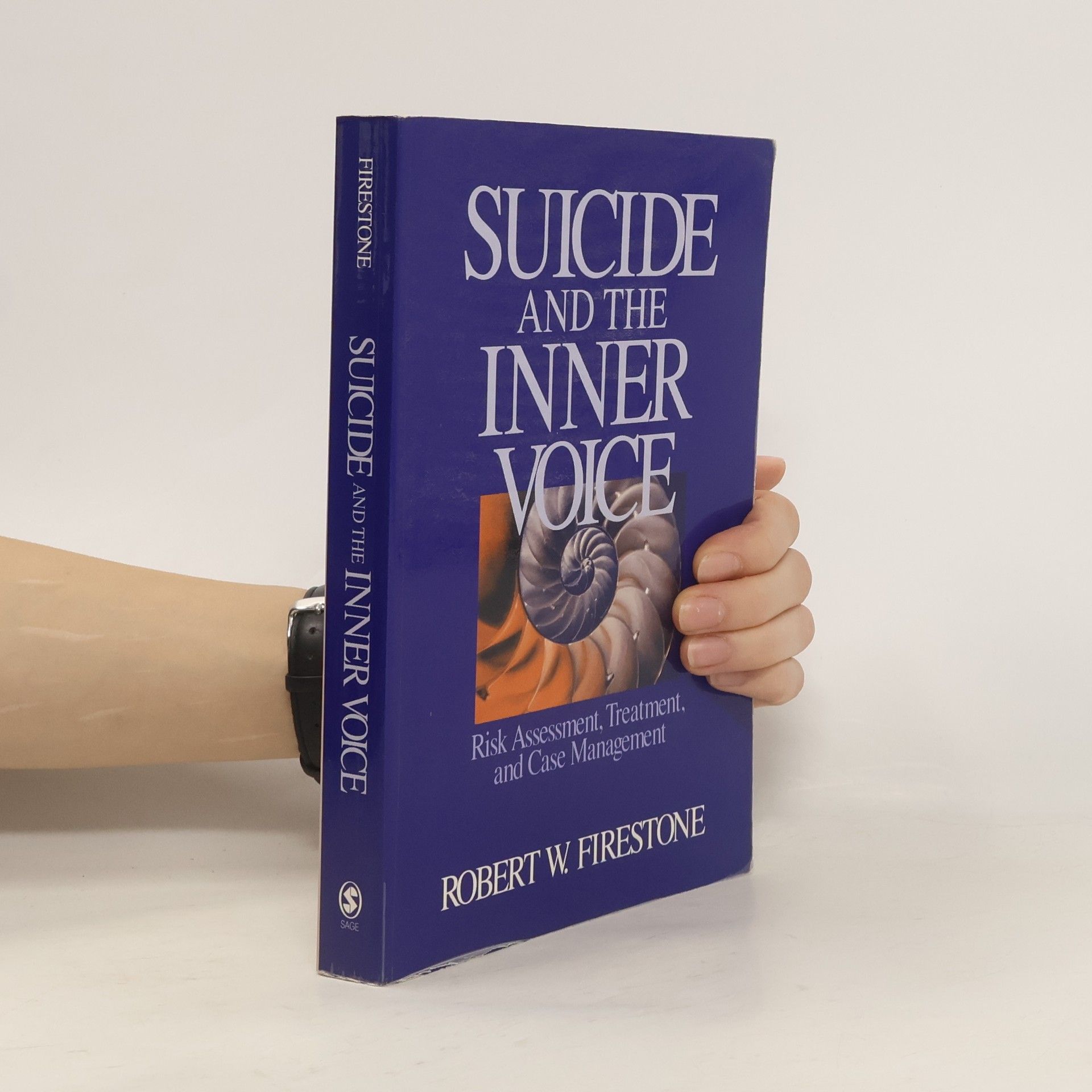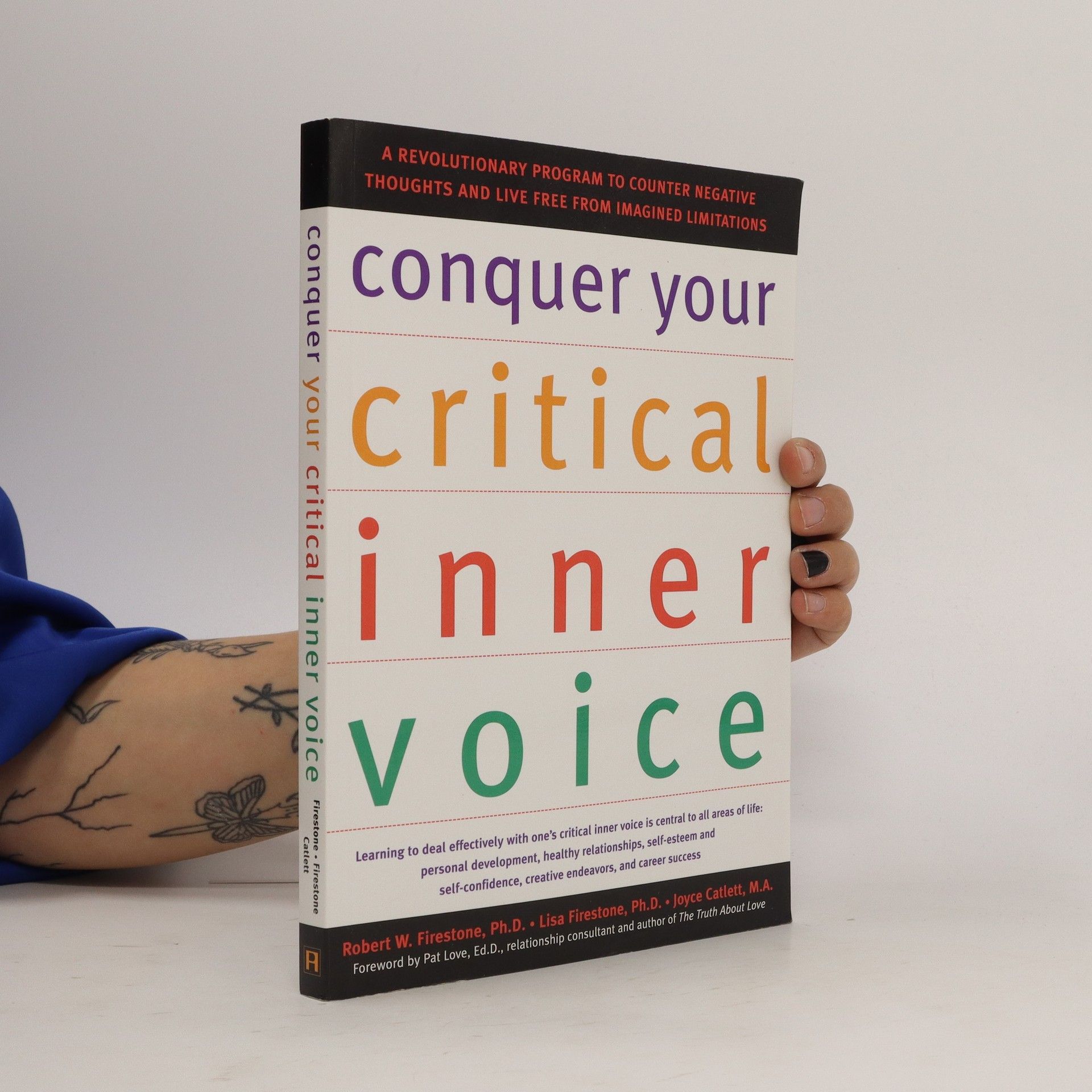In Fear of Intimacy, the authors bring almost 40 years of clinical experience to bear in challenging the usual ways of thinking about couples and families. They argue that relationships fail not because of the commonly cited reasons but because of psychological defenses formed in childhood that act as a barrier to closeness in adulthood. Written in clear, jargon-free language, Fear of Intimacy shows how therapists can help couples identify and overcome the messages of the internal "voice" that foster distortions of the self and loved ones. Related issues such as interpersonal ethics and the role of stereotyping are also discussed. The authors' innovative approach will be of interest to therapists and couples alike.
Robert Firestone Livres




Challenging The Enemy Within
- 230pages
- 9 heures de lecture
Many people grapple with destructive thought processes or a "critical inner voice" that directs their behavior and, to varying degrees, limits their lives. Using deeply personal and very human stories based on his own clinical practice, noted psychologist Robert W. Firestone illustrates the struggles of his clients to give words to this "enemy within," and in the process overcome its damaging influence. These revealing and captivating stories offer glimpses into the uniquely human relationship that develops in the therapeutic encounter and demonstrate the powerful impact that the experience has on both client and therapist. Dr. Firestone is the originator of a therapeutic method called "Voice Therapy," by which clients learn to identify the language of the defense system and eventually separate their own point of view from its harmful effects. Each story provides an intimate look into one person's life, illuminates aspects of his or her "dark side," and highlights an important insight into the therapeutic process. This sensitively written book will evoke emotional responses in readers, and inspire them to take action to challenge the dictates of their own inner critic. Taken together, these stories underscore the distinctive merits and continuing relevance of the therapeutic process, especially in our distracted, technological world increasingly detached from feeling.
Conquer Your Critical Inner Voice
- 214pages
- 8 heures de lecture
The inner critic is the voice in our heads that whispers, whines, and needles us into poor self-esteem and self-confidence. It edits our thoughts, controls our behavior, and inhibits our actions. It thinks it is protecting us from being hurt or feeling abandoned, but all it really does is reinforce our feelings of shame and guilt, sabotage our intimate relationships, and incline us to self-destructive behaviors. Conquer Your Critical Inner Voice presents a revolutionary new strategy for dealing with the inner critic: externalizing it. This subtle, powerful technique turns internal self-criticisms into 'you' statements that can be evaluated objectively and exposed as the gross exaggerations, unfair comparisons, or flat out lies they really are. This book takes you through the step-by-step process of learning how to keep track of your negative thoughts, analyze their reality, and recognize how they impact your life. Learn to use a variety of techniques to help release your inner critic's stranglehold and combat its subversive effect on your career achievement, intimate relationships, and sexuality. A final chapter of the book offers parents simple ways to help their children avoid forming a tyrannical inner critic.
Suicide and the Inner Voice
Risk Assessment, Treatment, and Case Management
- 352pages
- 13 heures de lecture
What internal factors cause a person to end his or her life, and what are the familial and societal factors which seem to make a destructive contribution? The answers to both questions are at the heart of this volume, which will be invaluable for practitioners when assessing risk and designing treatment for depressed and suicidal patients.The author argues that the key to understanding suicidal behaviour comes from a knowledge of the destructive thought processes of those at risk, and an awareness of their origins in early family interactions. Firestone sees negative events in our lives as being less harmful than what we tell ourselves about them, which can result in a downward spiral of negative internal conversations. Wi